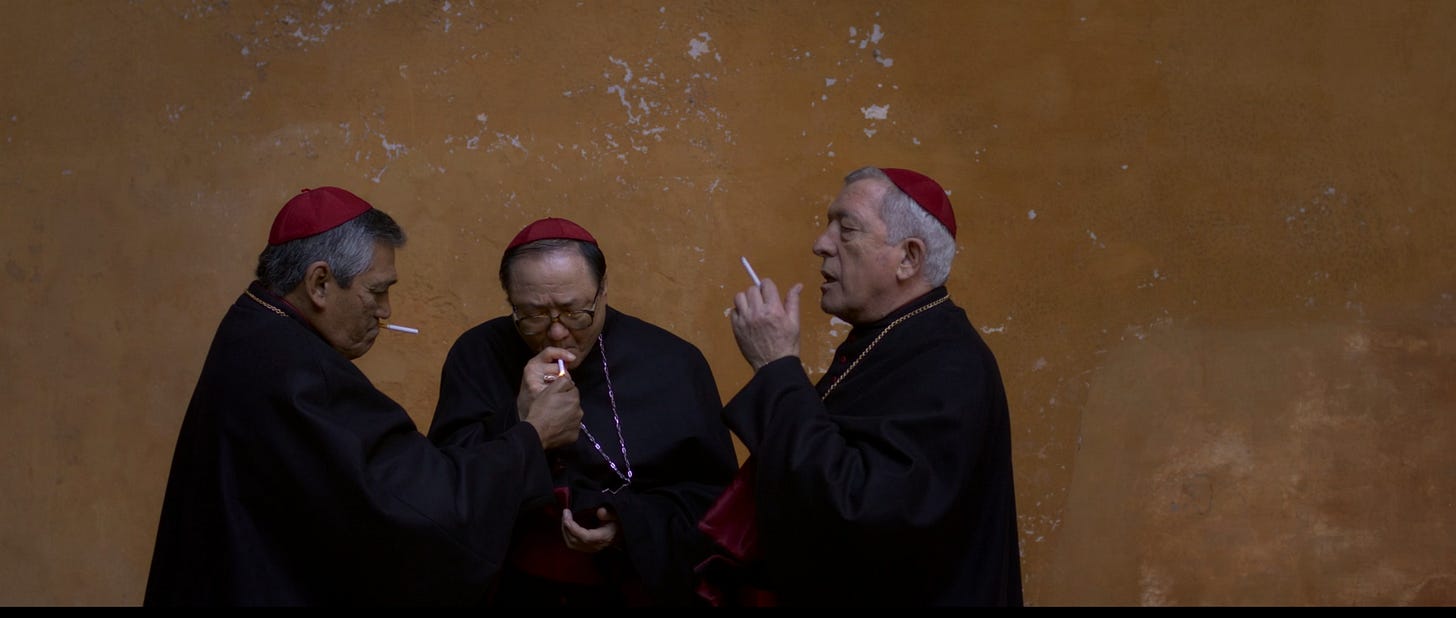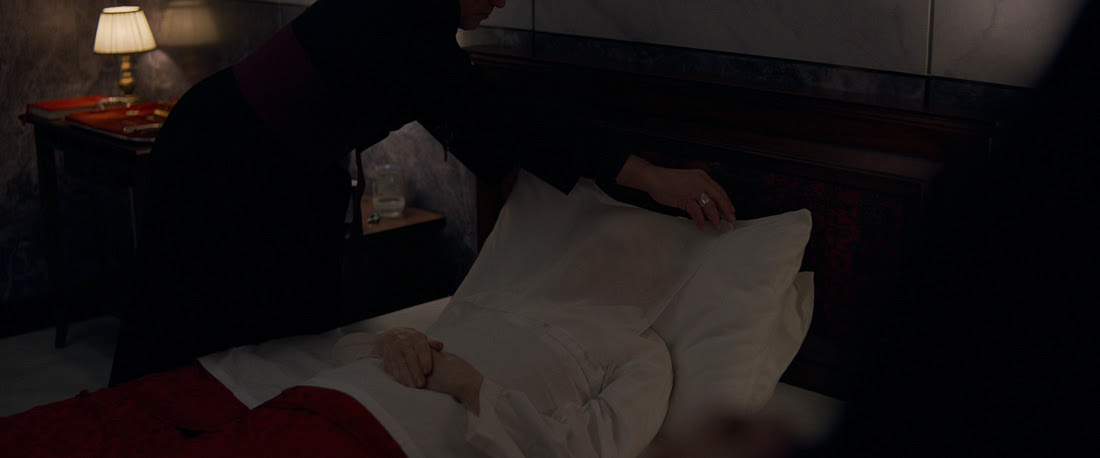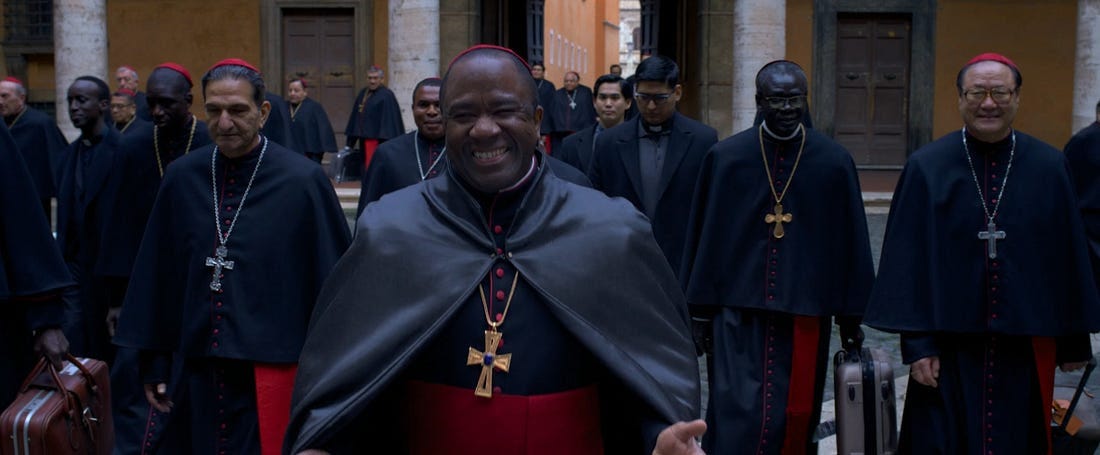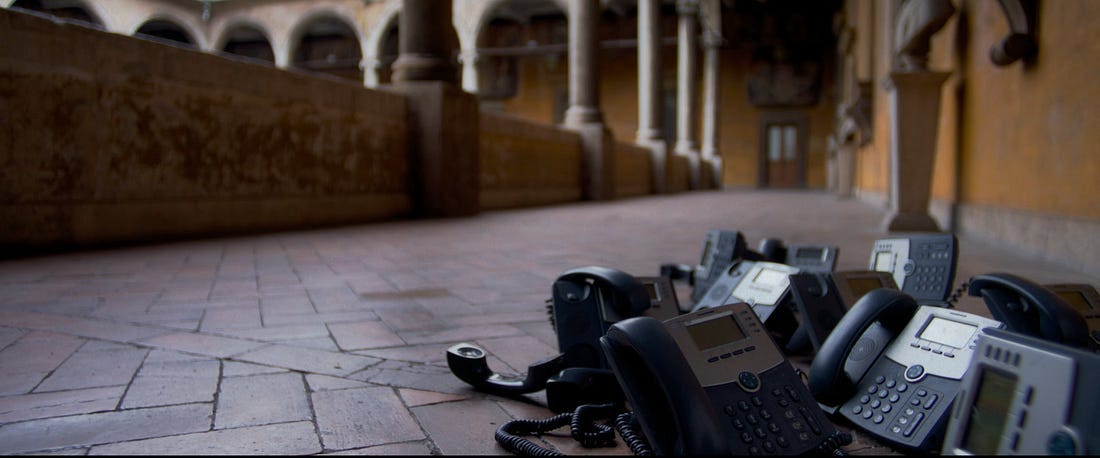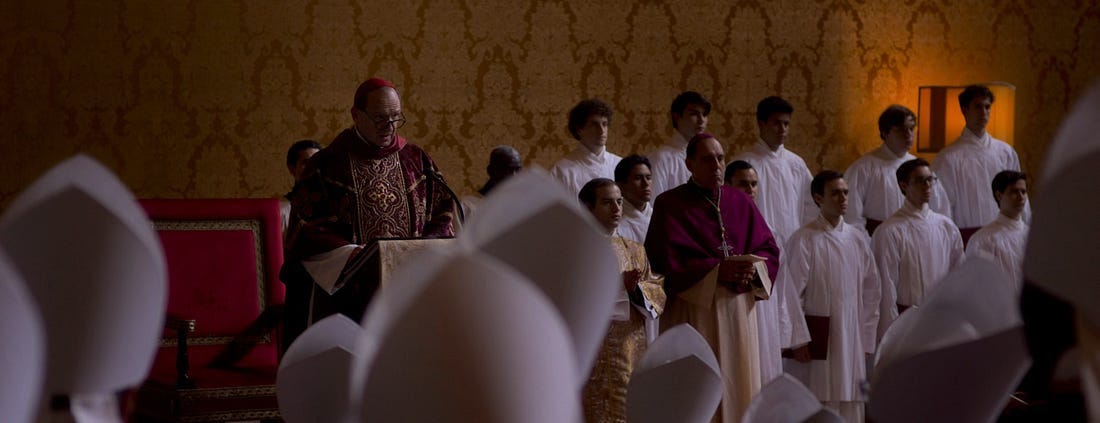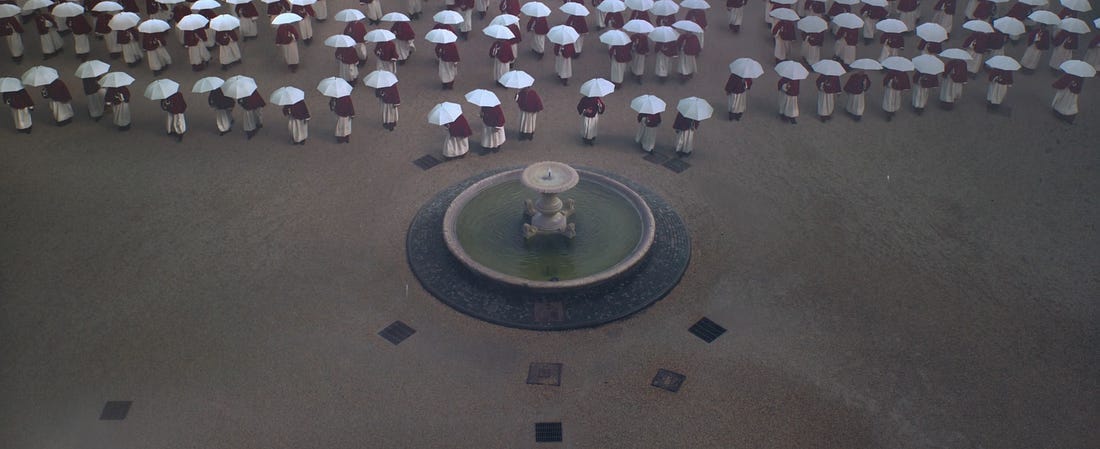A note: This post accidentally went out as a paid post last night, instead of the usual time. To make up for this, I’m resending it at the usual time as a free post. Apologies for the mess up!
I’ll confess, it takes a lot to get me to care about the Pope. Catholicism in general is just not something I can get a hard-on over. It’s depressing, the fashion is bad and nothing about it makes sense to me. But old men queening out over petty bullshit that doesn’t matter? Sign me up.
That’s how I was sold Conclave, specifically by the gay people in my phone who couldn’t stop screenshotting it leading up to the Oscars. And I can’t blame them: Conclave is character actor heaven. Not only do you have Ralph Fiennes at his tortured best, you get Stanley Tucci, John Lithgow, and Isabella Rossellini into the bargain. There’s even a guy who is not—but could easily be mistaken for—Fred Melamed, the Final Boss of character actors.
If only they weren’t making a movie about the Pope.
It’s not that I find it hard to enter into the struggles of cardinals, priests, nuns, prelates, and pontiffs. It’s that I find it impossible. I truly couldn’t care less whether the appointment goes to the progressive Cardinal Tremblay or the popular Cardinal Adeyemi or the loathed Cardinal Tedesco (the Melamed lookalike) whose racism and “traditional” values threaten to set the church back centuries. I can’t care because as far as I’m concerned you can’t set the church any further back than it sets itself. Conclave is staged, shot, and marketed as a “political thriller,” but the politics presented are insular. Yes, in a certain sense, the Pope matters politically. But in another sense—who cares?
What’s interesting about Conclave isn’t the pope shit. It’s the contradictions inherent in the way Catholicism has set itself up. Consider, for instance, the irony of a religion that preaches humility forcing cardinals to duke it out for the top spot. Ambition does exist in the world of the Catholic church, but it is both encouraged and criticized. Cardinal Lawrence, the guy in charge, has an idea that if somebody wants to be Pope, he’s already not right for the job. The job has to choose you, but you also have to be elected by a jury of your peers. You also ostensibly have to be able to speak to God, but you also have to check your ego at the door, even if you can speak to God.
It’s a waste of everyone’s time to try and make Catholicism make sense, and I’m not going to try. But it’s very important to these characters, even as they fail at being quite as Catholic as they might be. Cardinal Lawrence is the way catholics seem to believe they ought to be: measured, diplomatic, self-sacrificing, ready to recuse themselves in a second should they find themselves becoming anything more than a dispassionate observer. But as the likely picks for Pope dwindle down to Lawrence and the surprise Cardinal from Kabul who showed up out of the blue, even Lawrence starts to reckon with the fact that he might end up getting the job he doesn’t want. Cardinal Bellini (Tucci) doesn’t want the job either. At least, he says he doesn’t. But in Conclave, as in The Sopranos, we can never quite tell whether characters are bullshitting when they talk about how they wouldn’t want the burden of responsibility, to say nothing of the power.
All in all, it’s not that different: being the top brass in any organization is both enviable and awful. You probably make the most money there is to make, but you also are the first to get shitcanned when a decision you’ve made turns out poorly. In terms of being Pope, it’s much closer to the Sopranos model than we’d like to believe. It’s a job that you have until you die, and within that time, it’s all about secret meetings and covert plans, and being extremely Italian and petty about everything. There’s even a weird conversation around gender and queerness—or transness, at least—that echoes the great Vito Spatafore debate.
What I found most interesting about Conclave was thing it only kind of teases at: the idea that this is a completely obsolete job. Before the conclave gets going and locks everybody in, we’re treated to shots of high-ranking Catholic official feverishly smoking cigarettes outside, greeting their fellow cardinals bearing rolling suitcases. There’s a weird joy in watching a cardinal scroll through his phone before handing it over to the nuns in charge. It’s as if to say: what are these people really doing here? Does it actually matter who gets the top spot if the organization itself is this irascibly wedded to the past? Is there any hope for change in an institution that still insists on a founding myth about a pregnant virgin?
I don’t know, and I’m not the one to ask. The last Pope we had was, all things considered, a great Pope. He sat down to a pasta dinner with prominent trans women and listened to them talk about their lives. He gave his ear to the most vulnerable people in the world, and took their problems seriously. But people who want to hate us don’t care what the Pope says or does about us. Today, we have bigger moral authorities than the semi-magical leader of the Catholic Church, which is both a good thing and a bad thing. It’s good that we’re not waiting on the word of some old white man to tell us what’s right and wrong in the world. The problem is there are so many other white men sounding off about morality, most of them consistently, egregiously wrong. It almost makes you wonder if the problem all along was men being in charge of anything.
Next week: A sad horror film.



